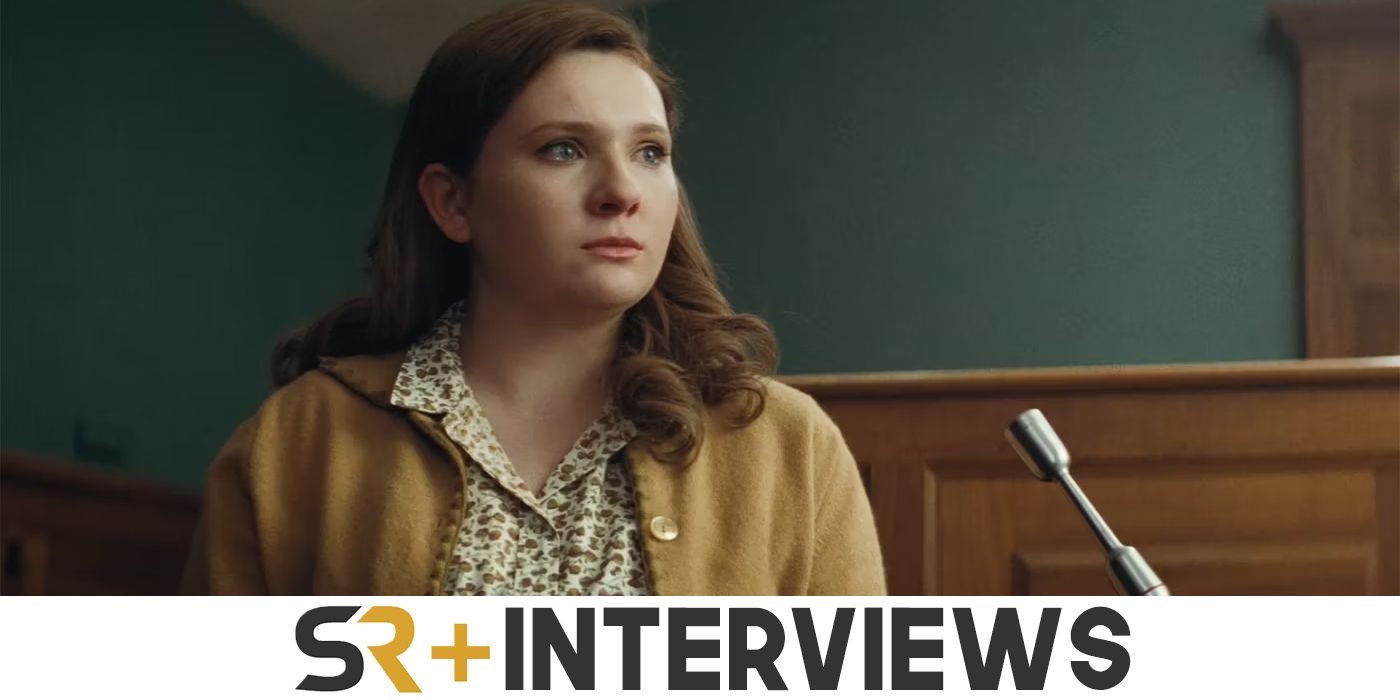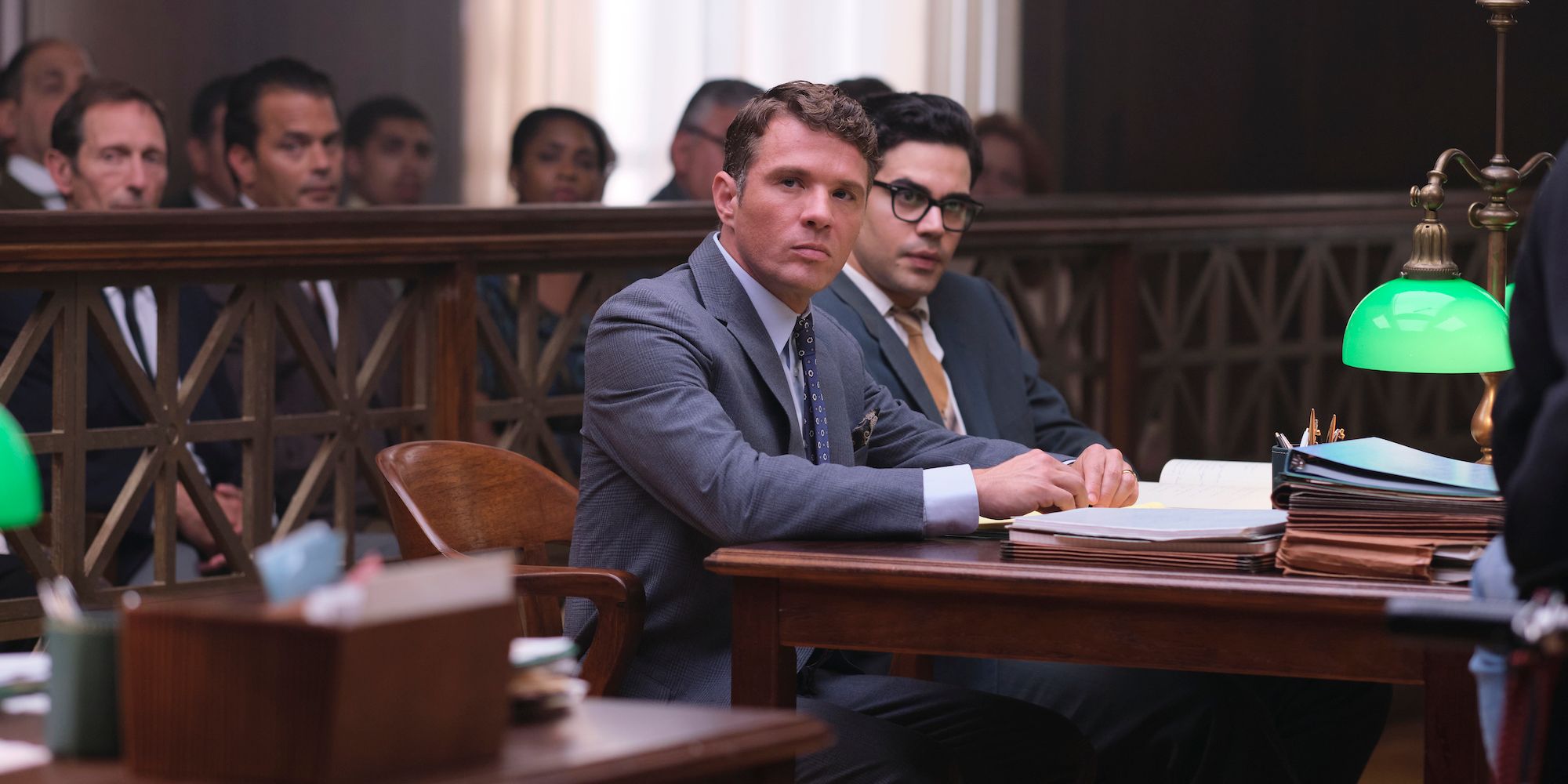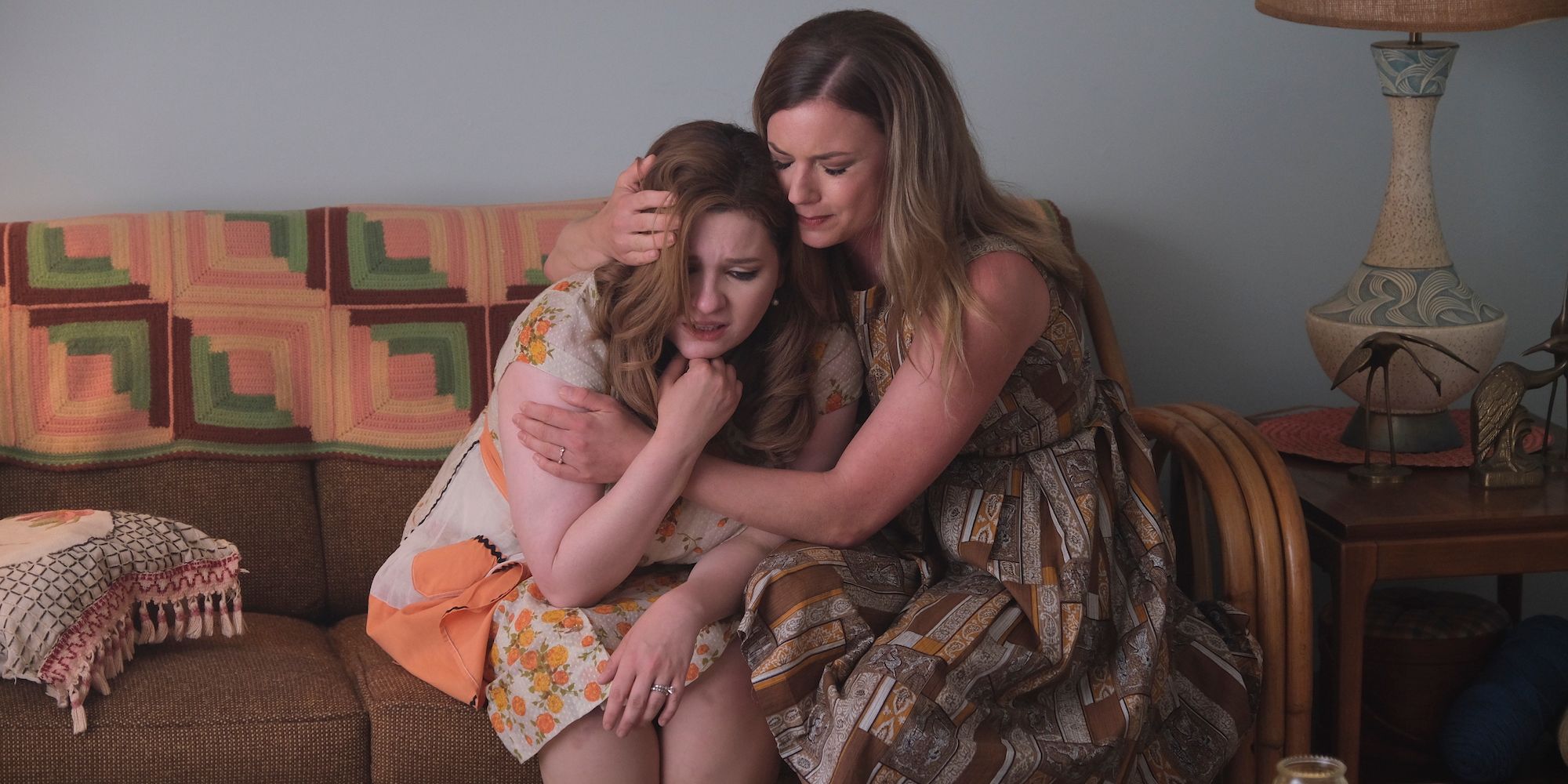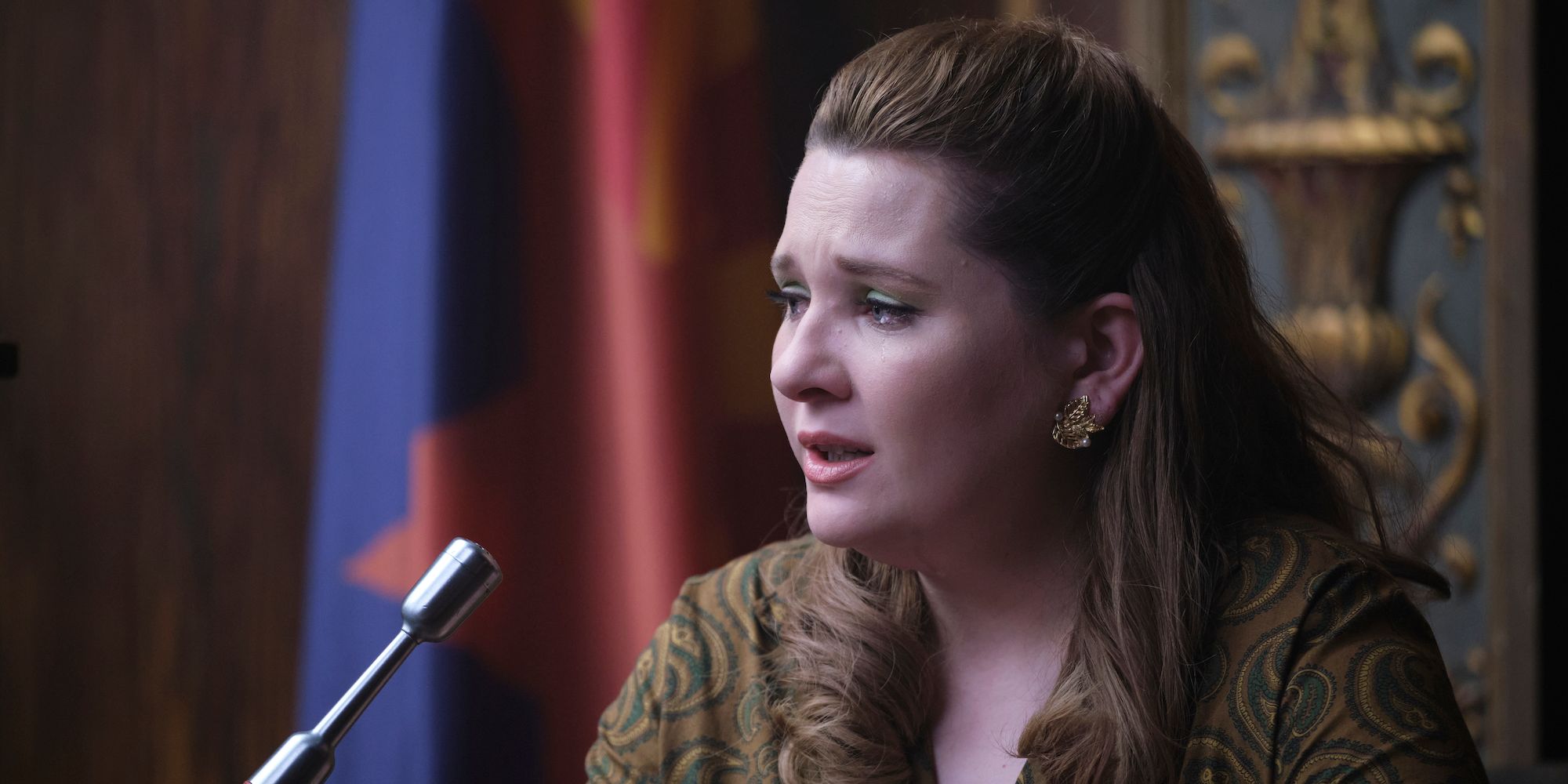Summary
- Miranda's Victim is a true crime drama that sheds light on the origins of the Miranda rights, a seminal step forward for the fair treatment of suspects.
- The movie features an ensemble cast led by Abigail Breslin and Sebastian Quinn, who deliver powerful performances that capture the emotional turmoil of the characters.
- Michelle Danner, the director of Miranda's Victim, brings a woman's perspective to the story, highlighting the overlooked watershed moment it represents for women and victims of sexual assault in American history.
Miranda rights are immediately and universally recognizable, having stemmed from one of the Supreme Court's most important decisions in recent memory, but their origins are being unveiled for the first time onscreen in Miranda's Victim. Directed by Michelle Danner from a screenplay penned by J. Craig Stiles and a story developed by George Kolber and Richard Lasser, the true crime drama follows Patricia "Trish" Weir (Abigail Breslin) from her abduction and rape by Ernesto Miranda (Sebastian Quinn) to the conclusion of her brave battle for justice.
Alongside Breslin and Quinn, Miranda's Victim also stars Mireille Enos, Emily VanCamp, Luke Wilson, Andy Garcia, Taryn Manning, Kyle MacLachlan, Donald Sutherland, and Ryan Phillippe. The ensemble cast is a major strength of the movie, but Danner's deft directing also imbues each moment with genuine emotion and allows Trish's pain and perseverance to shine in equal measure. After all, Miranda rights are a seminal step forward for the fair treatment of suspects — but they also represent an overlooked watershed moment for women and victims of sexual assault in American history.
Screen Rant spoke to Danner about how she first learned the story behind the Miranda Warning, and why it was so important to have a woman's perspective when making Miranda's Victim. The director also shared praises for her stellar cast and even told the humorous story of how Emily VanCamp was cast as Trish's sister Ann.
Michelle Danner Talks Miranda's Victim
Screen Rant: I really enjoyed Miranda's Victim and, like the majority of the audience, I had no idea about the true story behind the law or who Trish was. How did you come to know about her story? Was the script already completed when it came to you, or was it a project you became involved with when it was still shaping up?
Michelle Danner: I was still involved with it shaping up. It's something that I've been fascinated by; that genre of crime mystery. My sister has always made fun of me for the amount of Dateline 48 Hours that I have watched in my life. When they offered it to me, I was like, "Oh, they must know. They must know this is something that I'm interested in."
Yes, I did work on shaping the script. It was a labor of love. We shot it over a year ago, and I thought it was an incredible story. I couldn't understand this gap in our history that it hadn't been told. I did a movie called The Runner right before Miranda, and in the first scene of the movie, someone's getting arrested. This teen is getting arrested, and right away he's being read his Miranda rights. "You have the right to remain silent." I never questioned, for all the times we've seen that in every movie and TV show, the origin of it. Where did it come from? What happened?
What was your collaboration with George Kolber and J. Craig Stiles like, and what perspective did you want to bring to that story?
Michelle Danner: George Kolber is the one who really found the story. He nurtured it. He asked the question, "What happened to the victim?" He searched out Patricia, and I think she was reluctant at first to tell her story. She kept it private for 60 years. That's one of the reasons why we don't know about this story. But then he persuaded her to tell it.
When I first read the script, it was really out of the court transcripts. George was looking for a woman to direct it with a woman's sensitivity, and I really felt it was important that we should feel Trish in the story, and feel her anguish. We should feel her obstacles, in terms of 1963 and people around her that didn’t believe her. Nobody wanted her to tell her story. Her sister was the only person that supported her.
I thought it was important that we really felt Trish, and Abigail Breslin does such a beautiful job where I think she sustains the emotional current of the angst that she's going through. Her turmoil is palpable to me, and the audience can really stay with her and connect with her and feel her throughout the story. Because it's really a story about a woman who was so courageous that she came forth to tell her story not once, but twice, and relive a nightmare that happened.
I went to Arizona. I went to where she worked at Paramount Theater. I did the trajectory to the bus stop where she was abducted, and the drive to the desert, and I remember being at the bus stop and crying. That's a moment I think that really connected me to the story, and I thought to myself, "If she had taken an earlier bus, it would not have been her." But then again, it had to be her because there's a postscript at the end of the movie that says, "For 1000 crimes, only five get convictions." This is something in our society that is buried, and I know there's been the #MeToo movement, but a lot of people don't talk about sexual assault – including me. I think there's a lot of stories out there.
We did the festival circuit around the country, in some wonderful historical theaters, starting in Santa Barbara with the Arlington Theater. Our premiere on Thursday was here at the Regency Bruin, which is also considered a historical theater, built in 1937. So many people came up to me with tears in their eyes and said that it was important for them that this movie was made because it gave a voice to the story they could not tell.
You're so right about Abigail Breslin. She brings such life to Trish, and you really connect with her from her first scene. Beyond that, the family unit is fascinating and complex. Both her mother and sister want what they think is best for Trish, but her sister is the one supporting her while her mother hopes for silence. Can you talk about balancing their approach to Trish's trauma?
Michelle Danner: The mother is brilliantly played by Mireille Enos, who is nothing like this character. She understood that this love for her daughter was so huge; she wanted to protect her so much. Of course, it's not like she gives her the best advice, but it's the advice that a mother gave in that era – which I can understand because I know that this happened to my mother, and my mother swept it under the carpet and didn't want to deal with it.
What I found out through the course of working on this movie is that a lot of people have gone through this. When the mother confides in the daughter, "You think you're the only one that this happened to?" She's telling her that she swept it under the carpet because she didn't want to let it define her life. She was like, "It's not going to ruin me. I'm going to get up and pull myself together and move on." The mother very much infused that belief in her character, and she was driven by the love that she felt for her daughter and the need to protect her, which I think is a beautiful and full arc at the end. When Trish wins in that courtroom again, she wins for her mother too. She wins justice for all women.
The sister was her pillar of strength; the only one in real life that really supported her. And thank God she had that, because I'm sure that helped for her to really keep the courage to go in and testify twice. Two weeks ago, in New Jersey at the premiere, is the only event that the real Trish came to. There were 700 people there, and I came out with her at the end. She was shaking backstage, and I put my arms around her and she was nervous. This is a trauma that did not leave her, but when I came out with her, 700 people stood to their feet and gave a very long standing ovation. She was so nervous, but I think she feels the importance of having come forth.
Absolutely. This is silly, but I love that Emily VanCamp and Josh Bowman are both in it, albeit with other partners. Was that just a purposeful, fun thing to do?
Michelle Danner: Well, there were some logistics involved. Josh Bowman was my first choice to play Charles, but we had to fly him back to New Jersey three times. It was complicated for him, because he has a very young daughter. I didn't know he was married to Emily VanCamp – I really did not know, though I watched Revenge. I looked him up just for the hell of it after we offered it to him, and I was like, "Oh, my God. He's married to Emily, who would be a great sister." We had lunch, and I said, "Can you get Emily? If she wants, you can come with your child and don't have to fly back and forth three times."
I love her. She's actually a wonderful, wonderful actress. She was wonderful in Revenge, and she was wonderful in The Resident. She's just a wonderful actress. The very first scene, where she sits in the first courtroom scene with Abby and just listens without any lines of dialogue, they immediately found a connection. It was physical. I had chills. Immediately, they connected on that level, and they're very close to this day. They really connected very deeply, and I think that it really shows in the movie.
Emily has such warmth, and you can see that she really wants to protect Trish.
Michelle Danner: Totally. It works in the doctor scene, which is a tough scene to watch. She's really there for her.
So much of what Trish goes through has to do with the time period, even though we know that unfortunately, not enough has changed. What was most important to you when it came to setting the stage for this time and place?
Michelle Danner: Well, it was important to me to tell the full story. As a filmmaker, the thing that you hope with everything that goes on around you, the pressures of executive producers and everything, is that you're able to do the art. You're able to tell the story you want to tell. The story that I really want to tell did not end when she came out the second time on the courtroom steps – which, by the way, wasn't in the script. I added that. I added a lot of things, but that was one of the things that I added.
But the movie really comes full circle with karmic justice, and that's what I was interested in telling. This thing that happened with the guard talking with his finger, that really happened. He didn't get 20 years like Donald Sutherland’s judge wanted; he got eight years and he came out. But then he met his demise in that seedy bar playing poker, because karma's a bitch. Karma got him. I loved the idea of justice really coming full circle, so in case you don't do all your time, in case the judicial system doesn't completely take care of it, somebody else will.
And I loved the monologue that Donald Sutherland has. "You've been afforded every privilege." The rights are there for the villains. Civil rights are there for the people that are innocent and the people that are guilty. In this case, justice prevailed, but not fully because he got out in eight years.
I know that you still work with the Los Angeles Acting Conservatory. How does your experience with acting, and consistently working with fellow actors, affect your approach to directing?
Michelle Danner: I think a lot. I've been very lucky. My actors respond to me. 100% of the actors that I work with take 100% of my notes. It's rare. They all got together, apparently, and had a drink and talked about me for an hour, and I've never felt so much love, can I tell you, from a cast to this day even. We did the Q&A at the Regency Bruin last Thursday, and everybody had a story of everything that they would do for me. I feel so much love from all of them. Since then, I actually directed another movie called The Italians, which is a comedy and completely different.
To answer your question, I just love working with actors. I am an actress myself. I understand the language. I understand the process, which is important for an actor. And I think it's also very courageous for an actor to inhabit someone else's flame, to take on another person, to take on their life, their hopes, their dreams, their anger. I really love that collaboration, and I love the conversations where you find the right moments to tell their story.
About Miranda's Victim
Based on true events, in 1963 eighteen-year-old Trish Weir (Abigail Breslin) is kidnapped and sexually assaulted. Her assailant, Ernesto Miranda (Sebastian Quinn), confesses without legal representation and serves a two-year sentence, only to have the verdict later overturned. In the resulting retrial, a determined prosecutor (Luke Wilson) seeks to hold Ernesto accountable for his crimes, despite grueling opposition from Ernesto's defense attorney (Ryan Phillippe). What follows is a legal proceeding that forever changes the nation's justice system.
Miranda's Victim is currently available to buy or rent on digital platforms such as Apple TV, Vudu, and Prime Video.




